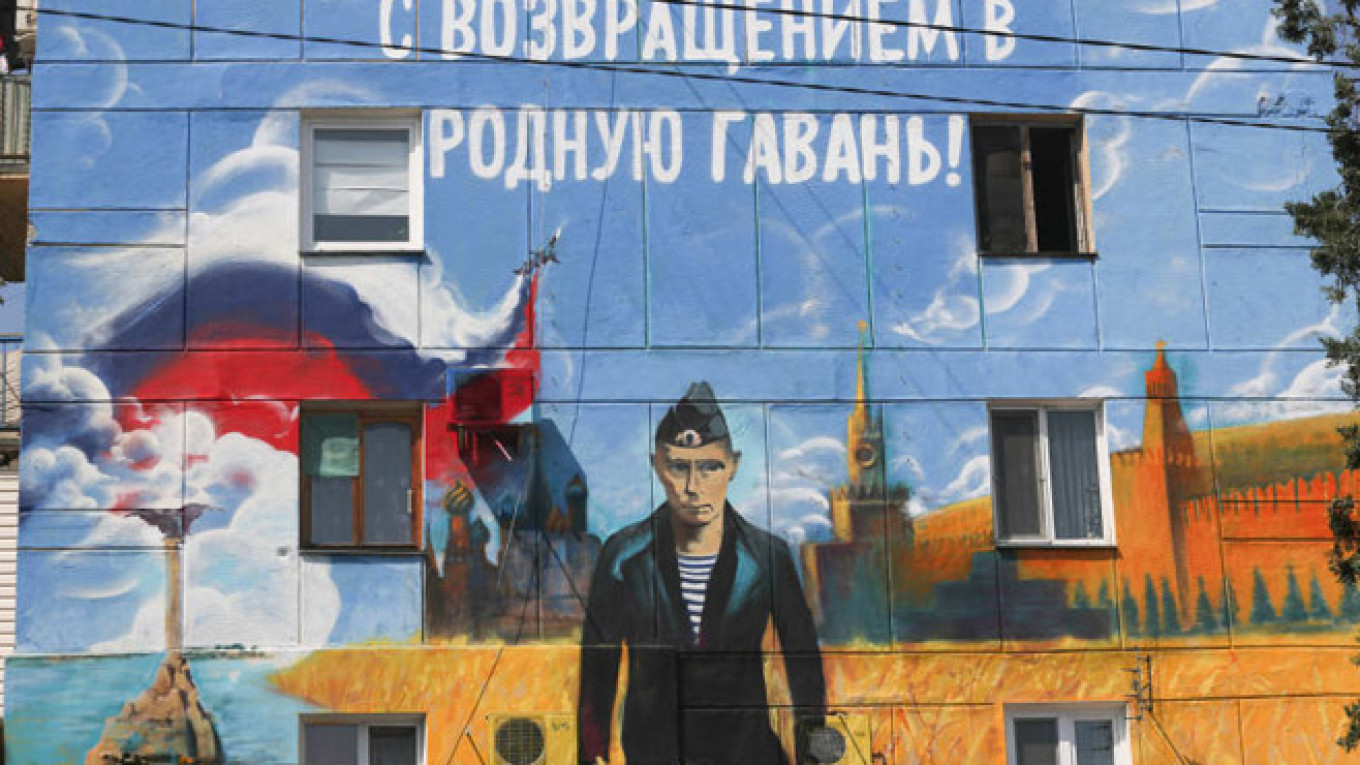This year has seen unprecedented events in Ukraine, not least the annexation of Crimea by Russia in March. Ukraine and Russia have been at odds ever since over the status of the peninsula. The international community has not acknowledged the changed status of Crimea or recognized the March referendum as legal. The situation has evolved into a stalemate that has clear disadvantages for both Russia and Ukraine, and a solution must be found to end the impasse.
Let us first establish a few obvious but important facts. First, the referendum in March and the process leading to it were not in accord with international law. One just has to point at the occupation of the peninsula by unidentified gunmen to dispel any notion of legality in the referendum and its result.
Second, Crimea has huge practical problems in obtaining control over its supplies of fresh water, energy, food and many more necessities because there is no land corridor to Russia and Ukraine is blocking or complicating access to Russia through mainland Ukraine. Crimea also has no access to foreign investment and capital, leaving the whole burden of developing it to Russia, which is experiencing its own problems due to Western sanctions.
Finally, as polls throughout the years have shown, a significant number of Crimeans do in fact want the peninsula to be a part of Russia. With Ukraine aspiring to become a fully fledged democracy, it has a moral obligation to take this local sentiment into consideration.
I would argue that on the basis of the above major facts the sensible way to solve this problem and break the stalemate is to hold a new and real referendum in Crimea and let the population once and for all choose its own destiny. That referendum should be organized and monitored by a third party, such as the United Nations or the Organization for Security and Cooperation in Europe.
Both countries would gain from the likely result of Crimea voting to join Russia. Ukraine would find a way to come to terms with the Crimean reality and this could help lessen the tensions with Russia, leading to much-needed stabilization in Ukraine. Russia would be able to secure the international status of Crimea as a lawful part of Russia and open it to investors and entrepreneurs from all over the world.
Of course there are some important conditions to be met before such a referendum can be held at all. In similar situations around the world, such as in Scotland, negotiations between all parties took years, while in the case of Crimea, due to the specific and dramatic present circumstances, the parties should set and agree on conditions within months, not years. To ensure the success of this proposal and to break the stalemate, the following conditions must be met:
• Free access to information for all Crimeans and no persecution before, during or after the referendum of members of either side.
• If Crimeans vote to become part of Russia, assurances must be given by Ukraine that it will not restrict the passage of basic necessities to Crimea through Ukraine.
• If Crimeans vote to become part of Russia, Russia must guarantee that the rights of all minorities in Crimea, including Ukrainians and Tatars, will be respected.
• Whatever the result, Crimea must retain a strong degree of autonomy, to be determined and agreed upon in advance by both parties.
This proposal includes problematic elements for both Ukraine and Russia. But it is clear that the current stalemate benefits nobody — least of all, Crimeans.
Ardjan Langedijk is a Dutch entrepreneur.
A Message from The Moscow Times:
Dear readers,
We are facing unprecedented challenges. Russia's Prosecutor General's Office has designated The Moscow Times as an "undesirable" organization, criminalizing our work and putting our staff at risk of prosecution. This follows our earlier unjust labeling as a "foreign agent."
These actions are direct attempts to silence independent journalism in Russia. The authorities claim our work "discredits the decisions of the Russian leadership." We see things differently: we strive to provide accurate, unbiased reporting on Russia.
We, the journalists of The Moscow Times, refuse to be silenced. But to continue our work, we need your help.
Your support, no matter how small, makes a world of difference. If you can, please support us monthly starting from just $2. It's quick to set up, and every contribution makes a significant impact.
By supporting The Moscow Times, you're defending open, independent journalism in the face of repression. Thank you for standing with us.
Remind me later.






